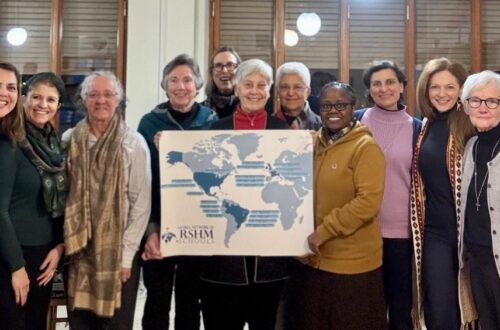The Gospel for this 5th Sunday of Lent invites us to evaluate our lives in the light of the justice of the Kingdom and to look with mercy at our brothers and sisters who walk alongside us. Reconciliation with God is not something vertical, but also involves reviewing our relationship with others and, sometimes, with ourselves.
The biblical narrative (John 8:1-11) makes this double invitation to personal conversion and compassion very clear. By ordering those without sins to apply “justice” to that woman, Jesus provokes in her accusers an examination of conscience and a conversion, such as we are called, as Christians, to experience during Lent. A conversion that allows us to take a sincere look at our own lives and recognize what in us still needs light and healing, instead of masking our mistakes by judging others. Jesus also urges us to evaluate the “laws” and values that govern our lives. This reflection is necessary so that we don’t sacrifice God’s will, which cries out to us, for the sake of our own judgments. We need to think about whether the laws that give us security and to which we hold on are not based on the stereotypes and prejudices that we have internalized throughout our lives. In the case of the “adulterous” woman, it is well known that her punishment was not only motivated by her fault, but by the typical discrimination of the time against the female figure, seen as a source of sin, as well as a clear intention to prejudice Jesus if he took a position in the situation.
This gives us a basis for reflecting on our real intentions when we want to correct a brother or sister who has done wrong. Are discrimination and violence capable of converting someone? Yes, mercy and love are sure ways to offer our brothers and sisters who are still in darkness a new perspective on life, just as Jesus did. Our founder, Jean Gailhac, pointed to this perspective as early as 1879 when he said that “the word of a heart that loves is like the warmth of the sun: it melts the ice of hearts and gives energy”. So we can conclude that the motivation to correct someone is only valid if it is preceded by love and a genuine concern for the person’s happiness. Otherwise, we run the risk of merely punishing others for not fitting our measures, disguising our discriminatory impulses as “justice”. In other words, only true love can confer the necessary “authority” for any correction. May the experience of this Easter open our hearts to this two-way conversion: reconciliation with God and compassion for our brothers and sisters!









